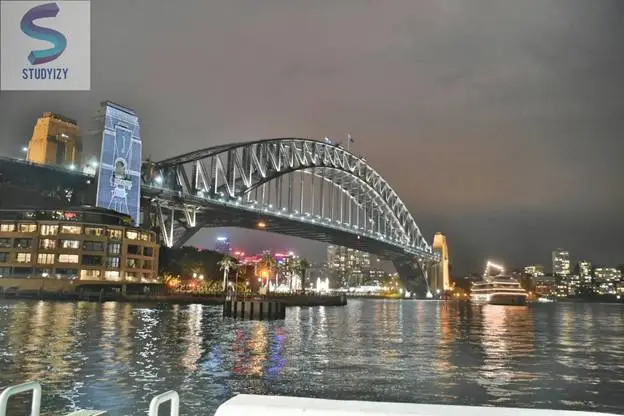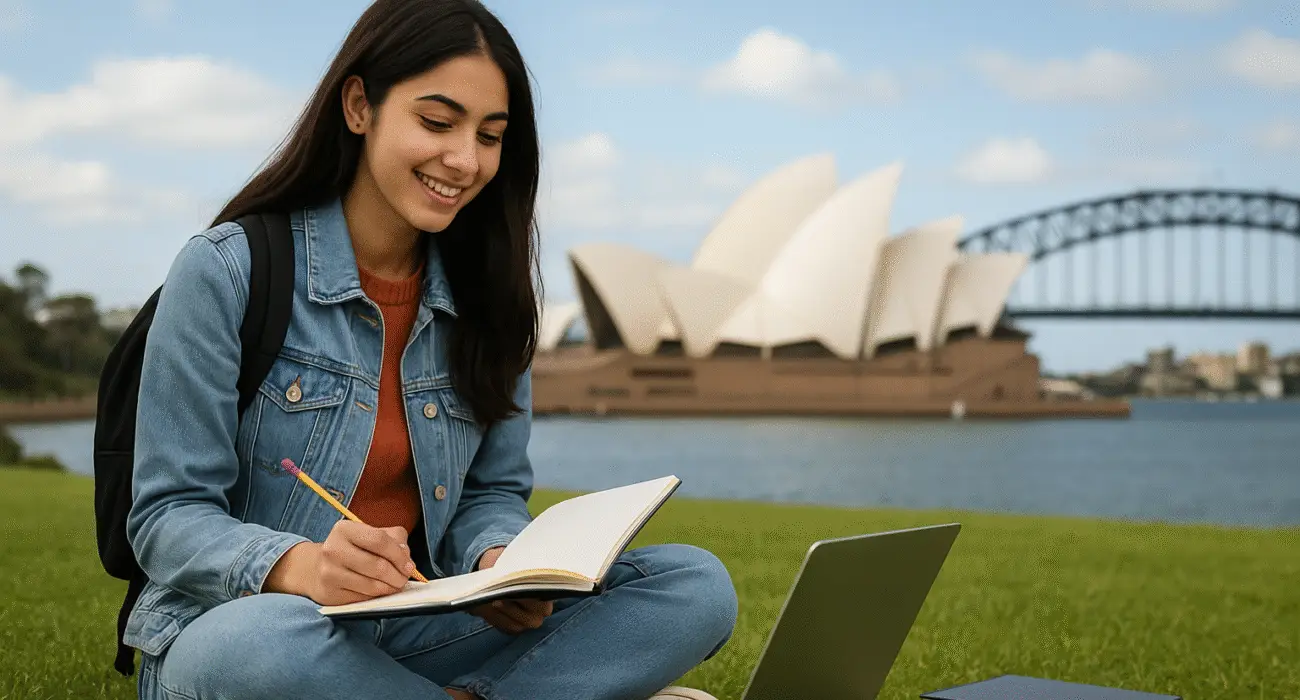Everything You Need to Know About Requirements, Costs, Climate, Culture, and Opportunities for International Students
Table of Contents
Introduction
Australia is one of the world’s most popular study destinations, offering a unique blend of high-quality education, social security, stunning natural landscapes, and vast career opportunities. In 2024, over 620,000 international students from around the globe—including a significant number from Iran—chose Australia as their study destination.

With its world-renowned universities, advanced facilities, welcoming multicultural environment, and safe society, Australia provides international students with the perfect setting to grow academically and personally.
Why Choose Australia for Your Studies?
Top-Ranked Universities: Australia boasts 7 universities ranked among the top 100 globally by QS World University Rankings, including the University of Melbourne, Australian National University, and the University of Sydney. These institutions offer diverse courses and excellent research opportunities.
Work Opportunities During Study: Student visa holders can work up to 48 hours per fortnight during academic sessions and full-time during breaks, helping to offset living costs and gain valuable work experience.
Post-Study Work Visa (Temporary Graduate Visa Subclass 485): Graduates can stay and work in Australia for 2 to 6 years, depending on their qualification level, providing a pathway to permanent residency.
Multicultural Society: With over 200 nationalities, Australia offers a friendly and inclusive environment, making it easier for international students to integrate and build global networks.
High Quality of Life: Cities like Melbourne and Sydney consistently rank among the world’s best places to live, thanks to excellent healthcare, public transport, safety, and recreational facilities.
Climate in Australia
Australia’s vast geography leads to diverse climates across cities, which can influence your choice of study location:

Melbourne: Experiences all four seasons distinctly, with cool winters (5°C to 14°C) and warm summers (15°C to 30°C). The weather can change rapidly within a day.
Sydney: Has warm, humid summers (18°C to 27°C) and mild winters (8°C to 17°C), with more rainfall than Melbourne.
Brisbane: Features a subtropical climate with mild, dry winters (10°C to 21°C) and hot, humid summers (21°C to 30°C). Ideal for those who prefer warmer weather.
Perth: Characterized by hot, dry summers (17°C to 30°C) and mild, rainy winters (8°C to 18°C), with plenty of sunshine year-round.
Adelaide: Mediterranean climate with hot, dry summers and cool, wet winters, offering a balance between comfort and affordability.

Tuition Fees and Living Costs in Australia
Average Annual Tuition Fees
Tuition fees vary by university, course, and study level. Below is an average range for 2025:
| Study Level | Annual Tuition Fee (AUD) |
|---|---|
| Bachelor’s Degree | 20,000 – 45,000 |
| Master’s Degree | 22,000 – 50,000 |
| PhD | 20,000 – 42,000 |
Average Monthly Living Expenses
Living costs depend on the city, lifestyle, and accommodation type. Approximate monthly costs are:
| Expense | Average Monthly Cost (AUD) |
|---|---|
| Rent | 600 – 1,500 |
| Food | 300 – 500 |
| Transportation | 150 – 250 |
| Internet & Phone | 50 – 80 |
| Entertainment | 100 – 200 |
| OSHC Health Insurance | 50 – 60 |
📌 Overall, students should budget around AUD 2,000 per month for living expenses in major cities like Sydney and Melbourne.

Best Student Cities in Australia
Melbourne: Known as Australia’s cultural and academic hub, home to the University of Melbourne and Monash University. The city offers vibrant arts scenes, cafes, and nightlife.
Sydney: Australia’s largest city with prestigious universities such as the University of Sydney and UNSW. Offers abundant job opportunities but higher living costs.
Brisbane: A more affordable city with a warm climate and home to the University of Queensland.
Perth: Offers a relaxed lifestyle with sunny weather and lower living expenses compared to the east coast. Home to the University of Western Australia.
Adelaide: Considered the most affordable major city, hosting the University of Adelaide and Flinders University.
Student Lifestyle in Australia
Australian student life strikes a balance between academics, work, and recreation. Students actively engage in social, sporting, and cultural activities. The friendly and open culture encourages international students to form connections.
Popular weekend activities include visiting beaches, parks, cafes, and participating in university events and outdoor adventures.
Working While Studying and Post-Graduation
International students can work up to 48 hours per fortnight during study periods in sectors such as hospitality, retail, and university roles (e.g., research assistantships).
After graduation, the Temporary Graduate Visa (Subclass 485) allows graduates to work full-time for 2 to 6 years depending on their qualification, offering valuable work experience and a potential route to permanent residency.
Australian Student Visa (Subclass 500) Application Process

Choose Your Course and University: Research courses, universities, and fees.
Receive an Offer Letter: Apply and get accepted by your chosen university.
Pay Initial Tuition Deposit and Obtain COE: Confirmation of Enrollment is mandatory for visa application.
Prepare Required Documents: English proficiency test results (e.g., IELTS), Overseas Student Health Cover (OSHC), health examinations, financial proof, etc.
Submit Visa Application Online: Through the Department of Home Affairs website.
Await Decision and Plan Your Arrival: Visa processing can take several weeks to months.
Important Tips for Students
Improve English Skills: Strong English proficiency is essential for academic success and work opportunities.
Translate Documents Officially: Ensure all academic and identification documents are officially translated and ready.
Understand Australian Culture: Australians value punctuality, respect for laws, and polite behavior. Building social networks with local and international students is highly beneficial.
Financial Planning: Budget carefully and explore scholarships and financial aid options.
Use University Resources: Take advantage of libraries, counseling, tutoring, and extracurricular activities to enrich your experience.
Conclusion
Studying in Australia offers an exceptional opportunity for quality education, multicultural exposure, and extensive work prospects post-graduation. With proper planning, city and university selection, and budgeting, you can make the most of this invaluable experience and build a successful future.





